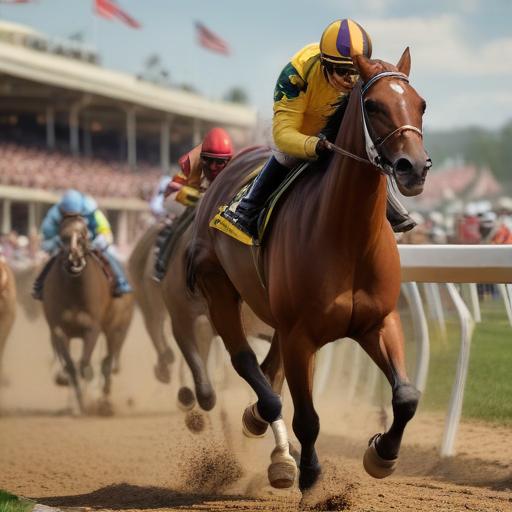BALTIMORE — Sovereignty, the recent winner of the Kentucky Derby, will not be appearing at the Preakness Stakes this Saturday, a decision made by his owners and trainer Bill Mott due to the short turnaround time between races. This marks the second time in four years that the Derby winner has opted out of the Preakness, reflecting a growing trend in recent years. The Triple Crown, a coveted title in horse racing, is not on the line as the Preakness will run without a Derby champion competing, extending a streak of five out of the last seven editions of the middle jewel lacking this competitive edge.
This situation has reignited discussions among racing enthusiasts and professionals about whether changes to the Triple Crown format are necessary. Suggestions have ranged from increasing the time interval between the Kentucky Derby, Preakness, and Belmont Stakes to introducing incentives for horses that participate in all three races, or even altering the race order. The current two-week gap is viewed by many as outdated, especially as elite horses are increasingly conditioned to run fewer times within a season—an adaptation that addresses concerns about horse health and performance.
Steve Asmussen, the top trainer in North America, expressed the complexity of this issue. He remarked that while the challenge of competing for the Triple Crown adds to its allure, there remains significant concern over the potential dilution of its prestige if changes were made. Historically, the debate surrounding the frequency of these races intensified during the long drought between Triple Crown winners, which lasted from 1978 until 2015, when American Pharoah broke the streak.
Notably, the Preakness Stakes has only featured a Derby contender twice in the last seven years, diminishing the excitement surrounding the possibility of a Triple Crown winner. Hall of Fame jockey Jerry Bailey pointed out that this marks a significant shift from past generations, where it was considered routine for Derby winners to compete at Pimlico.
Many prominent trainers, including Bob Baffert and D. Wayne Lukas, still press on to enter Derby horses in the Preakness, but others, like Mott and Todd Pletcher, have opted for caution. Mark Casse, who won in 2019 with War of Will, underlined the importance of attracting top horses to the series, emphasizing the health of the sport as a whole.
As discussions continue, it’s worth contemplating how the evolution of racing practices can benefit the sport while preserving its storied traditions. The challenges facing horse racing today reflect a greater trend towards prioritizing the well-being of horses, and finding common ground may ultimately foster a new era of competition that respects both tradition and modern approach.
